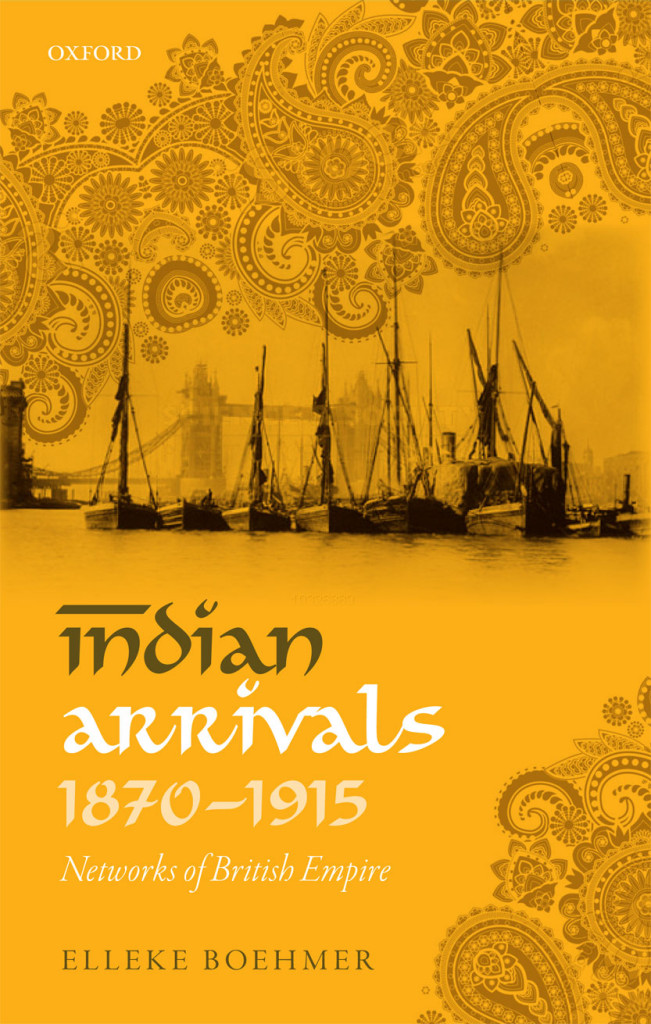Published by Oxford University Press, 2015

Indian Arrivals 1870-1915: Networks of British Empire explores the rich and complicated landscape of intercultural contact between Indians and Britons on British soil at the height of empire, as reflected in a range of literary writing, including poetry and life-writing. The book’s four decade-based case studies, leading from 1870 and the opening of the Suez Canal, to the first years of the Great War, investigate from several different textual and cultural angles the central place of India in the British metropolitan imagination at this relatively early stage for Indian migration.
Reviews
“[A] lucid study of the complicated – but not necessarily riven – landscape of intercultural contacts between Britons and Indians on British soil at the height of the Empire.”
—Tabish Khair, Times Higher Education
“In this luminous literary history of Indians’ encounter with English metropolitan culture, Elleke Boehmer asks us to dwell in the poetics of arrival itself. In its symbolic structures she traces not simply aesthetic forms or micro-dispositions of power but the very psychic life of the cross-border spaces that Indians in diaspora set into motion. It’s this dynamic terrain which, she argues, configured English modernity—that inimitable mesh whose recesses she illuminates with authority and affinity. All those who seek to understand the work of India and Indians in the making of imperial Britain will have to reckon with this book.”
—Antoinette Burton
“Written with a rare combination of subtlety, style and psychological nuance, Indian Arrivals 1870–1915 is as remarkable a work of literary and cultural history as it is a meditation on what it is to ‘arrive’—in all senses of the word—in the strange familiarity of the imperial metropolis.”
—Santanu Das
“Using diaries and poems as the mobile media of imperial connection, Elleke Boehmer reveals the ‘cross-border poetics’ that shaped British and Indian cultural movements alike in the decades before the Great War. Her emphasis on the interplay of communications and culture powerfully rethinks the locations of identity as it was imagined and performed between Bombay, Suez and London.”
—Nile Green, author of The Love of Strangers: What Six Muslim Students Learned in Jane Austen’s London